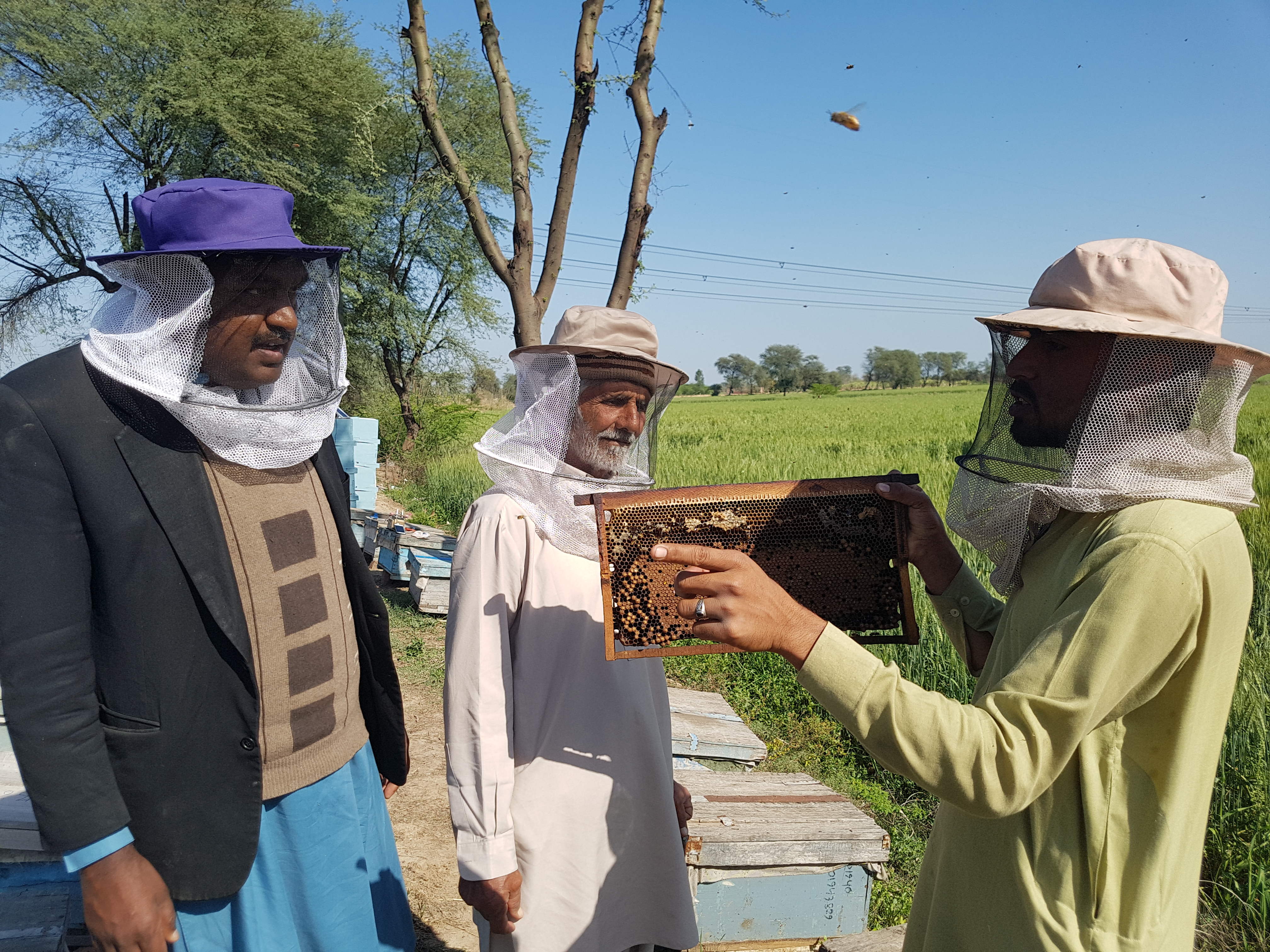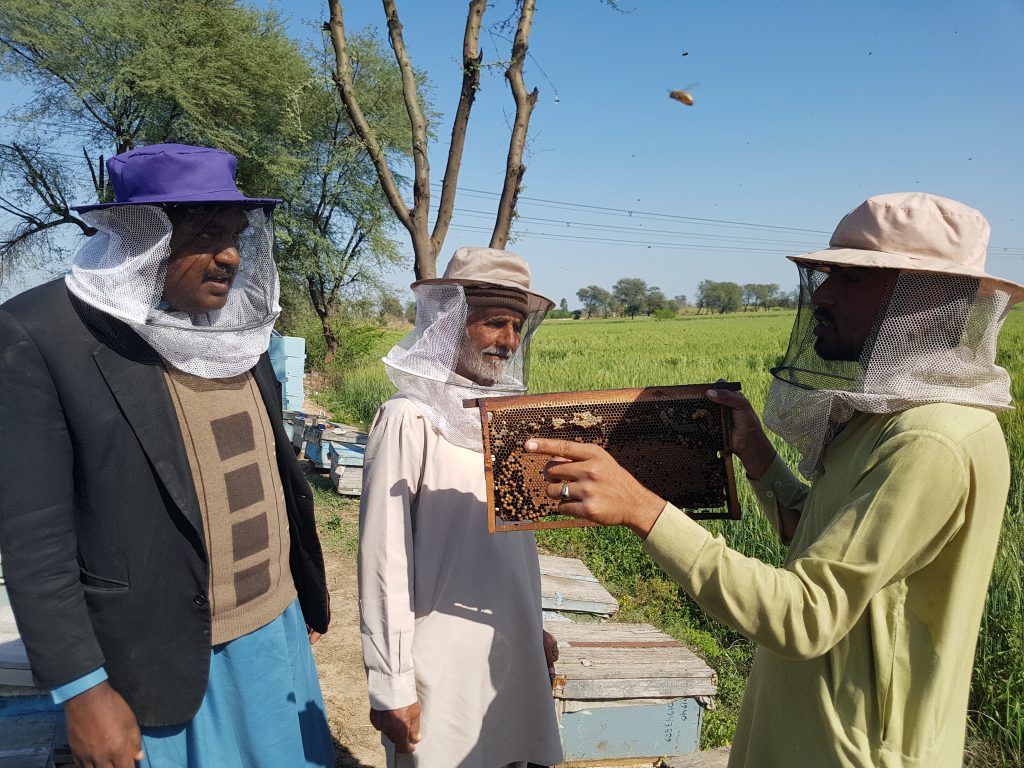
It was a bright sunny day in March. I was documenting training and distribution of honey boxes among poor farmers of villages in Sargodha district of Pakistan’s Punjab province. The distribution was one of the several initiatives by Caritas Pakistan under its Smallholder Adaptive Farming and Biodiversity Network (SAFBIN) program.
The benefits of keeping bees are numerous. Bees are pollinators which transfer pollen from one flower to another. This fertilizes plants so that they can grow and reproduce.
The apiculture (beekeeping) training was held at green farms surrounded by yellow flowers and running water channels. The ethnic Pashtuns(Involved in honey business over decades), hired as trainers, were wearing safety equipment as they trained the smallholder farmers on types of bees, advantages of bees, flowering crops/plants required for bees, and different tools and demonstrated equipments required for bee keeping. These tools included protective gloves and hats, bee boxes, frames for hives and honey strainers and extractors. They provided a very comprehensive training to the small farmers regarding all the technical aspects of honey extraction. There is no such facility provided by the government regarding bee keeping in these areas. However it was identified during our data collection process that small farmers have very less components and connection in these districts of Sargodha and Khushab.

Honey bee boxes distribution increases their farm diversity, nutrition and economic stability. Farmers kept the honey bee boxes near mustard fields. It was reported that the pollination is increased after they kept honey bee boxes in their fields.
I could sense the spirit of brotherhood and social harmony while interviewing the Christian and Muslim farmers who received their honey boxes. Most of them are now earning good profit by extracting about 25 kilograms of honey from each box. Farming was their only source of income for the past several decades. It gives them a great way out to earn extra money and improved their nutrition status.
Many shared a remarkable improvement in their children’s health after consuming the organic honey. The project also boosted social cohesion and unity among villagers. It was also reported by the farmers that they do not feel drudgery. Instead there is a productive involvement of male and female members.